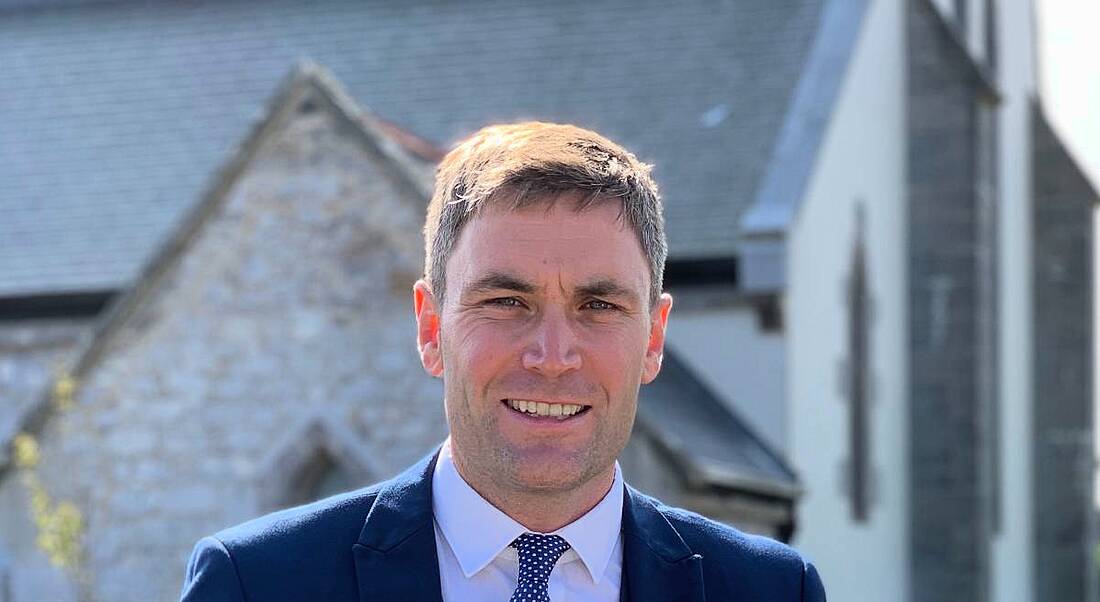Harry O’Farrell, CCO of Irish-owned climate tech company ActionZero, says we need to get people invested in learning green skills at an early age.
The need for Ireland to transition to a greener economy and society has never been more urgent. There are plans in place – Ireland has committed to halving our greenhouse gas emissions by 2030 and to reaching net-zero emissions by 2050 at the latest. But what of our ability to deliver on these plans?
Our progress to date, as evidenced by our emissions trajectory, suggests a gaping chasm between climate policy and climate action. But what happens when we do start to take meaningful action? Do we have the people with the right skills to deliver? The growing skills gap presents an enormous challenge. Many within the construction and engineering sector would say it can even be categorised as a skills crisis.
The Build Up Skills – Ireland 2030 (BUSI) report suggests that Ireland is projected to be short as many as 120,000 skilled workers in the built environment industry to deliver our infrastructure and climate action goals by 2030.
Right now, we need engineers – a survey carried out by Engineers Ireland early this year found that almost three-quarters of its members were concerned about a shortage of engineers with the right skills. We also need skilled craftspeople and construction workers and are facing a shortfall of approximately 85,000 workers including 61,000 people through the apprenticeship route.
But with great challenge comes great opportunity and as troubling as this skills gap is, it will undoubtedly present incredible opportunities for lasting employment, but only if we can address the various impediments that are currently acting as a deterrent to these professions. So, what are some of the things we can do?
Engage with school children and their parents
We need to engage with parents as much as students in both primary- and secondary-school about the rewarding career opportunities in the engineering, construction and green energy sectors. We have a generation of people scarred from the old boom-bust cycle associated with construction, who have both power and influence over the career paths of their children. But we need to realise that this is different. We are looking at 30 years of work as we transition to a net zero-emissions society. The population of Ireland is also set to grow by about one million people by 2040. Meaning we will need even more homes and investment in infrastructure – all while delivering upon the binding climate goals.
Create and communicate clear paths for upskilling
We need to provide clear pathways for students and existing workers to upskill throughout their careers or transition into the sector.
After secondary-school, I opted to pursue a career in the electrical trades. That is until the Celtic Tiger went bust, at which point I found myself faced with two options: emigrate or upskill. Thankfully I opted for the latter via an electrical engineering degree pathway in Cork Institute of Tecnology (now Munster Technological University). But this was a pathway I had to investigate, identify and ultimately navigate on my own out of pure necessity – it was not common knowledge.
Construction and trades work is physically demanding work. The number of young people opting for the apprenticeship route has fallen substantially since the Celtic Tiger era, but we are also seeing many older skilled workers reaching a stage where they are retiring or opting for less demanding work. We need to enable more people to remain in the sector as they get older. We can provide experienced workers with the skills to transition into project management, supervisor roles or additional training to focus on areas of climate action.
Rethink the maths syllabus
We also need to rethink how we teach maths. The BUSI report highlights the shocking statistic that dropout rates in third-level engineering courses are as high as 70pc. This shows the disconnect between second- and third-level maths and engineering. I struggled with maths in college and needed weekly grinds to get through the course material. I was a qualified electrician who returned to college as a mature student to complete a degree in engineering and wondered if I would have stuck it out if I had been a younger student.
We simply need to find more ways to accommodate flexibility in this element of engineering courses. A decent level of understanding of maths is needed, but in a world of disruption in the workforce via software and AI, surely we can broaden our definition of engineering skills that need to be taught?
Intervention is key
John F Kennedy is famously quoted as saying, “The Chinese use two brush strokes to write the word ‘crisis’. One brush stroke stands for danger; the other for opportunity. In a crisis, be aware of the danger – but recognise the opportunity”. With the right intervention, we have an opportunity that we can exploit, creating an empowered and skilled workforce of tradespeople and engineers, who can help propel us into a better, greener future.
Harry O’Farrell is the chief commercial officer at Irish-owned climate technology company ActionZero and is the former chair of Energy Cork.
10 things you need to know direct to your inbox every weekday. Sign up for the Daily Brief, Silicon Republic’s digest of essential sci-tech news.




